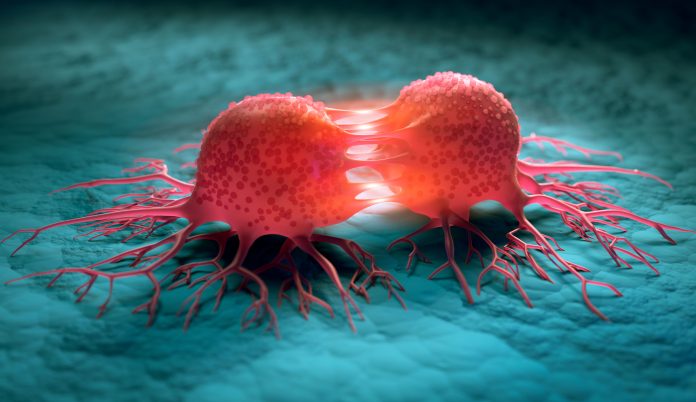
Elevation Oncology’s drug candidate seribantumab, currently being evaluated is a Phase II study, has received FDA Fast Track designation for tumor-agnostic treatment of advanced cancers harboring an NRG1 gene fusion. Seribantumab is a fully human IgG2 monoclonal antibody that binds to human epidermal growth factor receptor 3 (HER3). HER3 is traditionally activated through binding of its primary ligand, neuregulin-1 (NRG1).
“There are currently no approved therapies that specifically target NRG1 fusions, and therefore, receipt of Fast Track designation in a tumor-agnostic setting is a significant step in addressing this unmet need,” said Shawn M. Leland, founder and CEO of Elevation Oncology in a press release. “NRG1 fusions are a type of genomic alteration that causes unregulated cell growth and proliferation in a variety of solid tumors, and we look forward to working closely with the FDA as we continue exploring the potential of seribantumab to improve outcomes for patients whose tumor harbors this unique oncogenic driver.”
NRG1 fusions have been identified in a range of solid tumors including lung, pancreatic, gallbladder, breast, ovarian, colorectal, neuroendocrine, cholangiocarcinomas, and sarcomas. It is a rare alteration that creates chimeric NRG1 “fusion proteins” by combining NRG1 with another partner protein. The NRG1 fusion has been shown to activate the HER3 pathway, which leads to unregulated cell growth and proliferation. Usually, NRG1 fusions are mutually exclusive to other known cancer driver mutations making them a ripe target for new treatments as they are a unique oncogenic driver of tumor cell survival.
In preclinical studies, seribantumab prevented the activation of HER3 signaling in cells that harbor an NRG1 gene fusion and destabilized the entire ERBB family signaling pathway including the activation of HER2, EGFR, and HER4. While the drug candidate has been administered to more than 800 patients to date across a variety of Phase I and Phase II studies, both as a monotherapy and in combination with other oncologics, the current Phase II CRESTONE—(Clinical Study of Response to Seribantumab in Tumors with Neuregulin-1 (NRG1) Fusions; NCT04383210)—study is evaluating it in patients with solid tumors that harbor an NRG1 fusion and have progressed after at least one prior line of standard therapy. The goal of the trial is to define the anti-tumor activity and safety profile of seribantumab as a monotherapy in patients whose tumor is driven by an NRG1 fusion.
CRESTONE is a tumor-agnostic study due to the fact that NRG1 fusions are found in multiple tumor types. The FDA Fast Track designation was created to create an expedited pathway to review and potentially approved new drugs that show promise and can fulfill an unmet medical need.
The CRESTONE study is currently enrolling new patients at three dozen research sites in the U.S., Canada, and Australia. Detailed eligibility for the study can be found on the clinicaltrial.gov website (NCT04383210).











